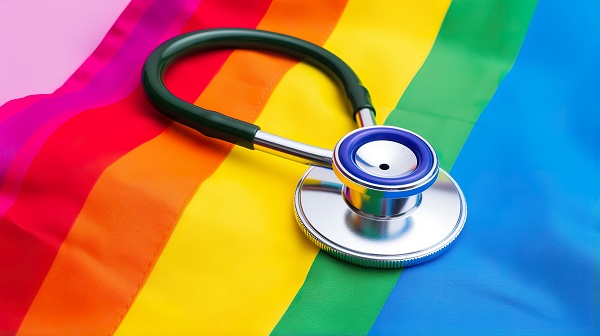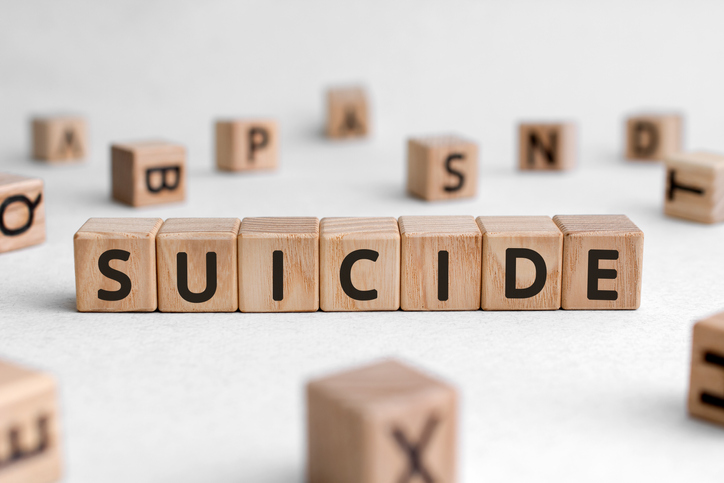Survey Highlights Mental Health Challenges for LGBTQ+ Youth

Queer and transgender youth are facing an escalating mental health crisis, with many contemplating ending their lives. The Trevor Project’s 2024 U.S. National Survey on the Mental Health of LGBTQ+ Young People highlights this urgent issue and sheds light on the challenges these young individuals face.
The 2024 survey is the sixth of its kind conducted by the Trevor Project, which gathered responses from over 18,000 LGBTQ+ individuals ages 13 to 24. This report reveals that LGBTQ+ youth are not only grappling with suicide risk, bullying, and discrimination but are also heavily impacted by anti-LGBTQ+ laws and face difficulties accessing mental health care.
What is the suicide risk for LGBTQ+ youth?
The survey’s findings are alarming: 39% of LGBTQ+ young people considered suicide in the past year, and 12% made an attempt. Transgender and non-binary youth are particularly vulnerable, with nearly half contemplating suicide and about 14% attempting it. The risk is even higher among transgender youth and LGBTQ+ youth of color. For example, 48% of Indigenous LGBTQ+ youth considered suicide.
Ronita Nath, vice president of research at the Trevor Project, made it clear that these youth are not inherently prone to higher suicide risk but are placed at risk due to societal stigma and discrimination. Threats of conversion therapy, discrimination, and physical harm exacerbate this risk.
What are the mental health challenges LGBTQ+ youth face?
In addition to the high suicide risk, LGBTQ+ youth experience elevated rates of depression and anxiety. According to the survey, 66% reported anxiety symptoms, and 53% reported depression symptoms in the past year. Among them, transgender youth and youth of color again showed higher rates.
A significant pressure point for LGBTQ+ youth is the surge in discriminatory legislation across the United States. This year is poised to break records for the most anti-LGBTQ+ bills introduced, further worsening the mental health crisis for these young people. Stephen Russell, director of the School of Human Ecology at The University of Texas at Austin, notes that these laws are undoing decades of supportive work in schools.
The survey indicates that most LGBTQ+ young people feel their mental health is affected by anti-LGBTQ+ policies, with nearly two in five considering moving to a different state due to these politics. Among transgender and non-binary youth, 61% of those on gender-affirming hormones are concerned about losing access.
What can we do to support the LGBTQ+ community?
Community support plays a crucial role in the mental health of LGBTQ+ youth. However, only 40% reported that their home environment is supportive. The survey also revealed that 32% of LGBTQ+ youth were verbally harassed at school, 9% sexually harassed, and 4% physically attacked in the past year. Additionally, 60% felt discriminated against at least once in the past year due to their sexual orientation or gender identity.
Despite the high prevalence of mental health challenges, half of the LGBTQ+ youth who needed mental health care were unable to access it. Major barriers included:
- Fear of discussing mental health.
- Not wanting to seek parental permission.
- Concerns about not being taken seriously.
- Affordability.
- Fear of being outed.
- Worry about being misunderstood.
Despite these challenges, the survey also highlights ways to support LGBTQ+ youth. That includes supportive homes, schools, and communities. Nath points out that LGBTQ+ youth report lower rates of suicide attempts when they have access to supportive spaces. For example, the survey found that 78% of LGBTQ+ young people have at least one adult at school who supports their identity.
Supporting LGBTQ+ youth involves various actions, such as:
- Educating oneself on LGBTQ+ issues.
- Opposing politicians who advocate for discriminatory legislation.
- Respecting gender expression and pronouns.
- Welcoming their partners.
- Showing support on social media.
- Displaying pride flags.
Our law firm fights for justice and accountability
Supporting LGBTQ+ youth is not just about preventing suicide; it’s about affirming their right to live authentic, fulfilling lives. However, medical professionals who treat LGBTQ+ patients must be aware of the unique challenges such patients face and recommend appropriate medical interventions to prevent self-harm or suicide attempts.
The Law Offices of Skip Simpson is dedicated to holding negligent medical professionals accountable and demanding justice for grieving families. If you have lost a loved one to suicide completion, contact us for a free, confidential, and no-obligation consultation, either by phone or online. Our law firm is based in Texas, but we proudly serve families nationwide.













